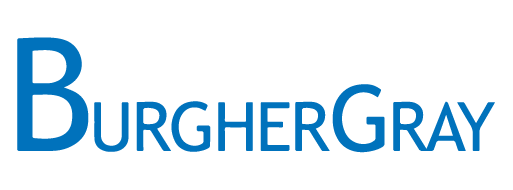No Need to Worry About Tax Implications of Modifying Mortgage Loans in Securitization Trusts

The U.S. economy is in sudden decline due to the national public health crisis caused by the COVID-19 pandemic. With unemployment rising dramatically and many sectors of the economy on virtual lockdown, many households and businesses in the U.S. are facing, and many more will face, difficulty paying mortgage, rent and other obligations. In response to these unprecedented circumstances, mortgage loan lenders and servicers are striving to provide assistance to borrowers through wide-ranging forbearance programs, fee waivers and other flexible repayment programs as quickly and efficiently as possible.
On March 27, 2020, President Trump signed into law the Coronavirus Aid, Relief, and Economic Security Act (the “CARES Act”). The CARES Act was enacted in response to the President’s national emergency declaration concerning the novel coronavirus pandemic on March 13, 2020. It provides borrowers of “federally backed mortgage loans” the right to request forbearance for 90 to 180 days, depending on the number of units in the related building, with no fees or extra interest charge. Foreclosure is prohibited during this period.
Many federally backed mortgage loans are held in securitization vehicles such as investment trusts and real estate mortgage investment conduits (“REMICs”). The forbearance provisions of the CARES Act raised many issues, including: (1) whether the forbearance would jeopardize the federal tax qualifications of the securitization vehicles; and (2) whether the loans for which servicers have provided forbearances to borrowers who are experiencing financial hardship due to the COVID-19 crisis can be acquired by a REMIC without the acquiring REMIC being treated as having improper knowledge of an anticipated default for purposes of the rules governing REMIC foreclosure property.
The CARES Act provides, among other things, that during the covered period, single-family and multifamily borrowers with federally backed mortgage loans experiencing a financial hardship due, directly or indirectly, to the COVID-19 crisis may request and obtain forbearance on their loans. The CARES Act defines the term covered period to be the period beginning on the date of its enactment (March 27, 2020) and ending on the earlier of the termination date of the COVID-19 emergency and December 31, 2020.
The CARES Act defines the term federally backed mortgage loan to include any loan that is secured by a first or subordinate lien on residential real property (including individual units of condominiums or cooperatives) designed principally for occupancy by one to four families and that is (A) insured by the Federal Housing Administration under title II of the National Housing Act; (B) insured under section 255 of the National Housing Act; (C) guaranteed under Section 184 or 184A of the Housing and Community Development Act; (D) guaranteed or insured by the Department of Veteran Affairs; (E) guaranteed or insured by the Department of Agriculture; (F) made by the Department of Agriculture; or (G) purchased or securitized by the Federal Home Loan Mortgage Corporation or the Federal National Mortgage Association.
If a borrower who is experiencing hardship due to the COVID-19 crisis, requests forbearance on a federally backed mortgage loan, the related loan servicer shall provide the forbearance for up to 180 days, which period may be extended for an additional 180 days at the request of the borrower, provided that, the borrower’s request for an extension is made during the covered period. The borrower has the option to shorten the forbearance period. During the period of forbearance, no fees, penalties, or interest beyond the amounts scheduled or calculated as if the borrower made all contractual payments on time and in full under the terms of the mortgage loan shall accrue on the borrower’s account.
The term multifamily borrower means a borrower with a residential mortgage loan that is secured by a lien against a property comprising five or more dwelling units. The term federally backed multifamily mortgage loan includes any loan (other than temporary financing such as a construction loan) that (A) is secured by a first- or subordinate lien on residential multifamily real property designed principally for occupancy by five or more families, including such secured loan the proceeds of which are used to prepay or pay off an existing loan secured by the same property; and (B) is made in whole or in part, or insured, guaranteed, supplemented, or assisted in any way, by any officer or agency of the federal government or under or in connection with a housing or urban development program administered by the Secretary of Housing and Urban Development or a housing or related program administered by any other such officer or agency, or is purchased or securitized by the Federal Home Loan Mortgage Corporation or the Federal National Mortgage Association.
Upon receipt of an oral or written request for forbearance from a multifamily borrower with a federally backed multifamily mortgage loan that was current on its payments as of February 1, 2020, and that is experiencing a financial hardship during the COVID-19 emergency, a servicer shall (A) document the financial hardship; (B) provide the forbearance for up to 30 days; and (C) subject to satisfying certain conditions, extend the forbearance for up to two additional 30 day periods. A multifamily borrower can end the forbearance at any time.
Many lenders and servicers of non-federally backed mortgage loans intend either voluntarily or through State-mandated loan forbearance programs to provide forbearances to borrowers for the next three to six months.
An “entity”[1] qualifies as a REMIC only if, in general, substantially all of its assets consist of qualified mortgages, foreclosure property, and specified short-term investments and reserves. A mortgage is a qualified mortgage only if it is principally secured by an interest in real property. A mortgage is principally secured by real property if the value of the underlying real property is at least 80 percent of the mortgage’s adjusted issue price (that is, the mortgage’s loan-to-value (“LTV”) ratio is at least 125 percent).
The LTV ratio test can be satisfied on either the date that the loan was contributed to the REMIC or the date that the loan was originated (or deemed to be originated). With limited exceptions, a significant modification of a mortgage loan held by a REMIC will be treated as a taxable exchange of the original unmodified mortgage loan for a new mortgage loan (i.e., the modified mortgage loan). The new loan must be tested to determine whether it is principally secured by real property (and thus whether a qualified mortgage) as of the modification date (i.e., the deemed origination date for the new loan resulting from a significant modification of mortgage loan).
An “entity” qualifies as a REMIC only if as of the close of the third month after the startup day and at all times thereafter, substantially all of its assets consist of qualified mortgages and permitted investments. With limited exceptions a mortgage loan is not a qualified mortgage unless it is transferred to the REMIC on the REMIC startup day. The REMIC provisions are intended to apply only to an entity that holds a substantially fixed pool of real estate mortgages and has no power to vary the composition of such mortgage assets.
A modification of a debt instrument is any alteration, including any deletion or addition, in whole or in part, of a legal right or obligation of the issuer or holder of the debt instrument, whether the alteration is evidenced by an express agreement (oral or written), conduct of the parties, or otherwise. The general rule is that a modification is significant if, based on all facts and circumstances, the legal rights or obligations that are altered and the degree to which they are altered are economically significant.
The significant modification test does not provide a bright line rule so importantly the Treasury Regulations provide more specific rules dealing with certain categories of modifications. A modification that changes the timing of payments (including any resulting change in amount of payments) due under a loan is a significant modification if it results in a material deferral of scheduled payments. The forbearance allowed under the CARES Act allows for a change in the timing of payments under the loan that could be a significant modification.
A significant modification of an obligation that is held by a REMIC can result in material adverse consequences, including the termination of REMIC status or the REMIC being deemed to be involved in a prohibited transaction. Termination of REMIC status results in the “entity” being subject to net income taxation as a taxable mortgage pool. REMICs are subject to a 100% tax on any net income derived from “prohibited transactions”.
Real property acquired in foreclosure does not constitute a good REMIC asset if, when the REMIC acquired the related loan, the REMIC knew or had reason to know that the loan would default (the REMIC had “improper knowledge”). Acquiring a mortgage loan that participated in a CARES Act forbearance program could be improper knowledge that the loan would default.
Revenue Procedure 2020-26 (“Rev Proc 2020-26”) provides safe harbors under which modifications of certain mortgage loans in connection with the CARES Act forbearance program will not be treated as replacing the unmodified obligations with newly issued obligations, as giving rise to prohibited transactions, or as manifesting a power to vary for purposes of determining the status of a REMIC as such.
Rev Proc 2020-26 applies to REMICs or investment trusts providing forbearance of any federally backed mortgage loans or federally backed multifamily loans or other forbearance program for borrowers experiencing financial hardship due to the COVID-19 emergency that are provided during the covered period. Thus, for mortgage loans held by REMICs, forbearances are not treated as resulting in newly issued mortgage loans and are not prohibited transactions.
Rev Proc 2020-26 also applies to direct or indirect acquisition by a REMIC on or after March 27, 2020 of federally backed mortgage loans or federally backed multifamily loans subject to a forbearance under the CARES Act. That is, the REMIC can acquire one or more of these loans without jeopardizing its REMIC status due to knowledge of the likelihood of default at time of acquisition. If a REMIC acquires a forbearance loan, the forbearance (1) is not treated as evidence that the REMIC had improper knowledge of anticipated default and (2) is not taken into account in determining the origination date of the mortgage loan.
For mortgage loans held by investment trusts[2], forbearance will not be deemed to manifest a power to vary the investment of the trust certificate holders if (i) the forbearance was provided pursuant to the CARES Act, and (ii) relief was requested or agreed during the covered period, and granted as a result of the borrower experiencing a financial hardship due to the COVID-19 crisis. Thus, for forbearances made to mortgage loans held by an investment trust, the CARES Act provides relief from the general rule that an investment trust is not classified as a trust if there is a power under the trust documents to vary the investment of the trust certificate holders.
During the COVID-19 pandemic many Americans will have difficulty paying their mortgages. The CARES Act provides borrowers of federally backed mortgage loans the right to request forbearances of 90 to 180 days during the covered period. The CARES Act did not address the issues the forbearances would cause to REMICs and investments trusts. The forbearance allowed under the CARES Act could be a significant modification leading to termination of REMIC status or a prohibited transaction. For investment trusts, the forbearance allowed under the CARES ACT could be a power to vary the investment of the trust certificate holders. Rev Proc 2020-26 provides needed safe harbors to REMICs that forbearances under the CARES ACT will not result in (1) a significant modification of the mortgage loan, and (2) acquisitions by REMICs of such loans will not result in improper knowledge of a likelihood of default. Similarly, Rev Proc 2020-26 provides needed relief to investment trusts that forbearance under the CARES Act will not result in a power to vary the investment of the trust certificate holders.
[1] While a REMIC is treated as a separate entity or person for tax purposes, a REMIC need not be (and is usually not) a legal entity.
[2] An arrangement is treated as a trust if the purpose of the arrangement is to vest in one or more trustees responsibility for the protection and conservation of property for beneficiaries who cannot share in the discharge of this responsibility and, therefore, are not associates in a joint enterprise for the conduct of business for profit.
ATTORNEY ADVERTISING. The information contained herein may constitute attorney advertising in certain jurisdictions and, in any event, should not be construed as legal advice with respect to any specific fact or circumstance. The information was prepared and is provided by BurgherGray LLP for general information purposes only and should not be used or relied on as a substitute for competent legal advice from an appropriately licensed attorney at law. Neither the provision by BurgherGray or the use by you of the information presented herein creates any attorney-client relationship between you and BurgherGray LLP. Any prior result included in the information does not guarantee or imply a similar result or outcome in other matters.

